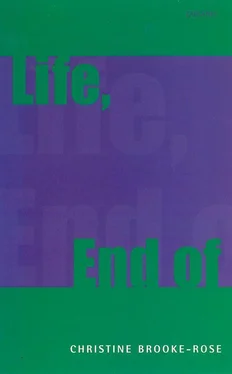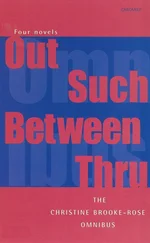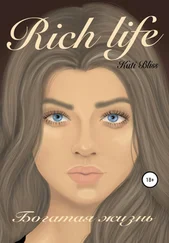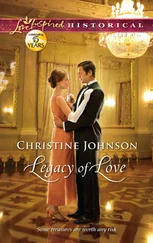Christine Brooke-Rose - Life, End of
Здесь есть возможность читать онлайн «Christine Brooke-Rose - Life, End of» весь текст электронной книги совершенно бесплатно (целиком полную версию без сокращений). В некоторых случаях можно слушать аудио, скачать через торрент в формате fb2 и присутствует краткое содержание. Год выпуска: 2012, ISBN: 2012, Издательство: Carcanet Press Ltd., Жанр: Современная проза, на английском языке. Описание произведения, (предисловие) а так же отзывы посетителей доступны на портале библиотеки ЛибКат.
- Название:Life, End of
- Автор:
- Издательство:Carcanet Press Ltd.
- Жанр:
- Год:2012
- ISBN:9781847775726
- Рейтинг книги:5 / 5. Голосов: 1
-
Избранное:Добавить в избранное
- Отзывы:
-
Ваша оценка:
- 100
- 1
- 2
- 3
- 4
- 5
Life, End of: краткое содержание, описание и аннотация
Предлагаем к чтению аннотацию, описание, краткое содержание или предисловие (зависит от того, что написал сам автор книги «Life, End of»). Если вы не нашли необходимую информацию о книге — напишите в комментариях, мы постараемся отыскать её.
by a master of experimental novels finds the author reflecting on her old age and its effects on her writing. As she reflects on her own career, her experiments with narrative, and on the narrative she writes here, she ultimately reasserts herself and accepts the life behind her.
Life, End of — читать онлайн бесплатно полную книгу (весь текст) целиком
Ниже представлен текст книги, разбитый по страницам. Система сохранения места последней прочитанной страницы, позволяет с удобством читать онлайн бесплатно книгу «Life, End of», без необходимости каждый раз заново искать на чём Вы остановились. Поставьте закладку, и сможете в любой момент перейти на страницу, на которой закончили чтение.
Интервал:
Закладка:
Subject plus transitive verb (direct object expected)
when certain people……………………..
who………………………..
besides……………………………
that…………….
because……….
and I must add here that…
New Subject……………………
who…………………..
although…….
but then…………
….
or of course……..
………….as I said…………………..how
to put it………………..
She sits, at the pink-tiled table, one spring, facing the terrace outside. Though expansively sunny, it’s not yet quite warm enough to eat there. This is a time at the start of the infirmities, before the bringing down of the office and the giving away of the sofa and table; when walking, cooking, receiving are still alive, more or less. It’s also too soon for geraniums to spread and hang from the terrace, but the winter heartsease still blues and purples the flower boxes. Heartsease, the old word, replacing pansies for a while until gays came in. Les pensées in French, calling up Pascal.
Bożena. An old True Friend, both older and older-looking thirty or more years ago, but older and younger-looking now, her hair still black, not dyed since single white hairs are now growing among the black, rather than highlights or white roots, her sharp-nosed face that of a sixty year old not eighty-five, her energy that of forty.
She’s petite, Polish, long-time widow of a Frenchman, her two sons grown in French, have children. So she is a grand-mother, though old enough to be a great-one. She uses Bérangère as first name in France, though they have only the sounds b and że/ge in common and a very different origin: Bożena comes from Bóg, pronounced boog, god, or Boże in the vocative, and means addressing God.
They meet on the winding stair of an old Paris house in the Cinquième, where each is the new owner of a very odd-shaped flat, each owner come to take stock after a long-loan purchase. One on the first floor, hers, the other on the second and last before the attic flats on the third. Their two flats are both shaped like prows, getting narrower and narrower after a fairly wide entrance made of small hall, small bathroom and kitchen on the left overlooking the courtyard with its two other entrance stairs, and a largish bedroom to the right, overlooking a narrow sidestreet. The hall then opens out into the living-room, which slowly shrinks into no-space, but prolongs the tall windows of the bedroom into four more, the end of the room a tiny space two arms wide, almost unfurnishable. The thick inner wall of both flats, facing the windows, is clearly the original outside wall of the eighteenth-century house, making the corner between the narrow street and the front street, this annexe tagged on, probably, widening the space by following a tangent lane. And these identically odd flats are adapted, decorated and furnished into extremes of difference, expressing their owners’ deep similarities in the initial choice mingled with astonishing particularities in the transformation. The only element the two flats have in common apart from the shape is the original Chinese-looking beige wallpaper. The top one is carpeted in dark brown, with tall matching velvet curtains in the bedroom against blood-red padded walls; the tall velvet curtains are continued in the living-room in warm colours grading off from violet to crimson to orange to yellow-gold. At the far end there’s now a deep radiator across the short end-wall, below a Second Empire mirror framed in gold-painted wood, much damaged, with a large top crest. The mirror too, is deficient, the tain-foil worn out here and there, but nevertheless prolonging the effect, not only of the curtain colours but of the tiny desk in the narrow part, facing the room, with an ex-door recess in the thick inner wall for books; then, the baby grand, beyond which are high book-shelves behind a sofa at the wide end and a bergère and huge floor cushions in the same velvets as the curtains, and books and files all along the inner wall. But the mirror can’t see, in the tiny entrance-hall, a folding black dinner-table between two velvet crimson chairs, the other two nestling somewhere according to need. Nor can it see, on this side of the baby grand, the two guitars, brought over from Spain and London and now leaning against its inner curve like a pair of open legs with huge feet shod in rackets. The mirror cannot reflect all this, but tries.
Her flat on the contrary shortens the narrowing room with a wall and door into a linen store-room. So the long room is no longer long, though still a trapeze. The carpeting is mustard, the curtains white lace with goldenish and white surrounds, the furniture all an elegant but unsinkable-in Louis XV style, a dining-table permanently there, instead of the piano, welcoming, surrounded by four chairs, not a makeshift hall affair. The books and desk are tucked away in the bedroom wih a put-up bed. So that the effect is light. Light and airy versus dark and cosy. White and gold versus glowing warm colours, elegance and outsideness versus comfort and innerness, books absent from the salon below but furnishing the living-room above. Each of their six windows, making twelve, are planted with hanging geraniums, adding gaiety to this façade of the white old house along one of the two streets that join at the corner.
But all that’s later, after the two purchases. The flats are now empty. Three people climb the curling narrow stairs from the courtyard to the lower flat, talking Polish. Strange how having had a Polish poet as husband for twenty-two years somehow brings other Poles into ken. A close colleague is also Polish. Osobna Pamienta.
Czy jesteście Polakami?
Tak, tak. I Pani?
But we soon slide back into French, the language we all live in, the Polish on one side too rusty anyway from non-use. We visit the identical bare flats. Bożena, Alain and Pierre, come to help their mother plan. It is the beginning of a long friendship.
Why is all this so vividly remembered? It can’t represent more than those twenty years of teaching as well as writing, with few French friends compared to foreigners, but Bożena is one of them.
By the way, have you noticed the overspeaking so frequent on the French media? On radio, before TV, they used to read prepared scripts for stilted discussions, which killed them. Now they’ve gone to the other extreme and interrupt each other the whole time, both talking together until the one with the loudest voice wins, meanwhile nobody’s heard a word.
Oh yes, Bożena, it drives me mad. In fact the chairmen join in. As permanent accompaniment. They can’t control their wish to prompt or add information or even quick cliché interpretations, so that neither voice is heard, briefly but many times. Or the interviewer asking a question so long and so further qualified that the guest keeps starting on his answer and fails. It happens even at the end, when he says we’ve only got a minute now, can you, very briefly, and then occupies half that minute with his last question.
Why do you think that is?
I don’t know. Self-assertion clearly. But it could be because French children don’t have debating societies in schools and universities, with strict parliamentary rules, as in England and Scotland. Those debating rules go back to the High Middle Ages.
Oczywiście! Tell me, do you think French is slowly dying?
What makes you say that?
One of these two ladies, clearly, is more obsessed with swift annihilation of words through interruption, the other with slow annihilation of whole languages in time. They are both well versed in the behaviour of language, but long ago, maybe half forgotten. With the latest research. That’s a familiar problem of age, passions remain but out of date. Even so it’s the world. The other one is black holes for words. The doctor says proper names go first. So how can we love other people as ourselves if we can’t even name them? Yet we do. She replies, but to the previous, spoken question.
Читать дальшеИнтервал:
Закладка:
Похожие книги на «Life, End of»
Представляем Вашему вниманию похожие книги на «Life, End of» списком для выбора. Мы отобрали схожую по названию и смыслу литературу в надежде предоставить читателям больше вариантов отыскать новые, интересные, ещё непрочитанные произведения.
Обсуждение, отзывы о книге «Life, End of» и просто собственные мнения читателей. Оставьте ваши комментарии, напишите, что Вы думаете о произведении, его смысле или главных героях. Укажите что конкретно понравилось, а что нет, и почему Вы так считаете.












